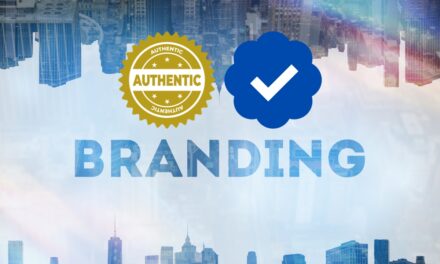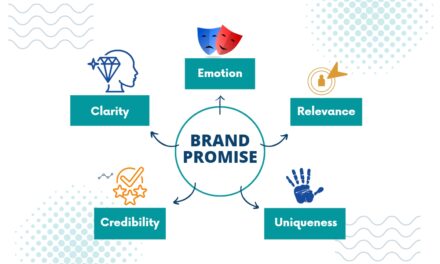Introduction
In today’s digital age, your online reputation can make or break your coaching business. With the rise of social media, online reviews, and instant communication, a single negative comment can spread like wildfire, potentially damaging your brand’s image. For coaches, especially those new to the realm of digital marketing, understanding the importance of online reputation is paramount. Enter the world of online reputation management (ORM). ORM isn’t just about countering negative content; it’s about building a digital fortress around your brand, ensuring that your online presence reflects the true essence of your coaching services. Whether you’re a life coach, a fitness guru, or a business strategist, managing your brand reputation online is no longer optional—it’s essential. In this guide, we’ll delve deep into strategies, tools, and actionable insights to help you navigate the digital landscape and protect your brand’s reputation.
The Importance of Online Reputation for Brands
In the digital era, a brand’s online reputation is its most valuable asset. For coaches, especially, this reputation directly influences client trust, credibility, and business growth. Imagine a potential client searching for a life coach and stumbling upon a negative review or an unresolved complaint about your services. Such instances can deter them from choosing you, even if the criticism isn’t entirely accurate.
Online reputation goes beyond just reviews. Every tweet, blog post, or comment associated with your brand contributes to the overall perception people have of your coaching services. A well-managed online reputation can lead to increased trust, better first impressions, and a higher likelihood of word-of-mouth referrals. On the flip side, a tarnished reputation can result in lost opportunities and dwindling client numbers.
For coaches new to digital marketing, it’s essential to understand that your online reputation is an ongoing project. It’s not just about building a positive brand presence online but also about continuously monitoring and managing how your brand is perceived. In essence, your online reputation is the digital word-of-mouth, and in today’s interconnected world, its importance cannot be overstated.
Understanding Online Reputation Management
Online Reputation Management (ORM) is the art and science of curating a brand’s digital footprint. At its core, ORM is about ensuring that the online narrative surrounding your coaching brand aligns with your values, mission, and the quality of services you offer.
But what does this entail? For starters, ORM is not just about countering negative publicity. It’s a holistic approach that encompasses creating positive content, engaging with clients online, and addressing concerns promptly. Think of it as digital PR; it’s about showcasing the best of your brand while addressing and mitigating the not-so-great moments.
For instance, consider a scenario where a client leaves a less-than-stellar review about your coaching session. ORM doesn’t mean deleting or ignoring this review. Instead, it’s about addressing the feedback head-on, understanding the client’s concerns, and taking actionable steps to rectify the situation. This proactive approach not only mends bridges with the concerned client but also demonstrates to potential clients that you value feedback and are committed to continuous improvement.
Moreover, with the vastness of the internet, managing brand reputation online goes beyond your website or social media profiles. It’s about being vigilant across various digital platforms, forums, and review sites, ensuring that the narrative about your coaching services remains positive and true to your brand’s essence.
In essence, ORM is a continuous journey, one that requires diligence, authenticity, and a genuine commitment to your clients and your brand’s integrity.
Brand Protection Strategies for Coaches
Navigating the digital landscape as a coach requires more than just offering exceptional services; it demands a proactive approach to protecting your brand’s image. Here are some tailored brand protection strategies for coaches to ensure their online reputation remains untarnished:
1. Consistent Branding
- Ensure that your brand’s voice, visuals, and messaging are consistent across all online platforms. This not only reinforces brand recognition but also builds trust with your audience.
2. Engage Actively
- Regularly interact with your audience on social media and other platforms. Respond to comments, share success stories, and offer valuable insights. This active engagement portrays your brand as approachable and invested in its community.
3. Monitor Online Mentions
- Utilize online brand monitoring tools to keep tabs on what’s being said about your coaching services. Being aware allows you to address any negative mentions promptly.
4. Encourage Positive Reviews
- After a successful coaching session, encourage satisfied clients to leave positive reviews. Genuine testimonials can significantly boost your brand’s credibility.
5. Address Negative Feedback Head-On
- Instead of shying away from criticism, address it constructively. Apologize if necessary, offer solutions, and show commitment to improvement. This transparency can turn a negative situation into an opportunity for brand growth.
6. Educate and Inform
- Regularly publish content that showcases your expertise. Webinars, blog posts, and e-books can position you as an authority in your niche, further solidifying your brand’s reputation.
7. Stay Updated
- Digital marketing is ever-evolving. Stay updated with the latest trends and adapt your brand protection strategies accordingly.
By integrating these strategies, coaches can not only protect but also enhance their brand’s reputation, ensuring they remain top-of-mind for potential clients seeking their expertise.
Tools for Monitoring Your Brand Online
In the vast expanse of the digital world, keeping a vigilant eye on your brand’s online presence is crucial. Fortunately, there are a plethora of online brand monitoring tools designed to make this task more manageable for coaches. Here’s a rundown of some essential tools to consider:
1. Google Alerts
- A free tool by Google, it sends you email notifications whenever your specified keywords (like your brand name) are mentioned online. It’s a simple way to track mentions across blogs, forums, and news sites.
2. Mention
- This comprehensive tool scans social media, blogs, and news websites for mentions of your brand. It offers real-time alerts, allowing you to engage or address mentions promptly.
3. Brandwatch
- Tailored for in-depth brand analysis, Brandwatch offers insights into brand sentiment, trending topics, and competitive analysis. It’s particularly useful for coaches looking to understand their market positioning.
4. Hootsuite
- Primarily a social media management tool, Hootsuite also offers features to monitor brand mentions across various social platforms, enabling you to respond in real-time.
5. Talkwalker
- This tool provides insights into brand sentiment, influencer collaborations, and even visual mentions, ensuring you have a holistic view of your online reputation.
By leveraging these tools, coaches can stay ahead of the curve, promptly addressing concerns, celebrating positive mentions, and continuously refining their online reputation management strategies.
Building a Positive Brand Presence Online
Creating a strong and positive online brand presence is paramount for coaches, especially in a digital age where first impressions often stem from online interactions. Here’s how you can build and nurture a positive brand image online:
1. Value-Driven Content
- Regularly publish content that resonates with your target audience. Whether it’s insightful blog posts, engaging videos, or informative webinars, ensure your content offers genuine value and showcases your expertise as a coach.
2. Engage Authentically
- Interact genuinely with your online community. Respond to comments, participate in relevant discussions, and show appreciation for positive feedback. Authentic engagement fosters trust and loyalty.
3. Showcase Success Stories
- Share testimonials and success stories of clients who’ve benefited from your coaching. Real-life examples serve as powerful endorsements for your services.
4. Maintain Visual Consistency
- Ensure that your brand visuals, such as logos, colors, and images, are consistent across all online platforms. This not only enhances brand recognition but also exudes professionalism.
5. Stay Active
- Regular online activity signals that your brand is active and updated. Whether it’s sharing a new blog post, announcing a workshop, or simply sharing a motivational quote, consistent online activity keeps your brand top-of-mind.
By focusing on these strategies, coaches can build a robust and positive online brand presence, attracting potential clients and establishing themselves as authorities in their niche.
Handling Negative Online Reviews and Criticism
In the digital realm, where everyone has a voice, negative reviews and criticism are inevitable. For coaches, especially those building their brand, such feedback can be daunting. However, with the right approach, negative reviews can be turned into opportunities for growth and brand enhancement. Here’s how:
1. Don’t Ignore, Acknowledge
- The worst response to a negative review is no response at all. Ignoring criticism can signal indifference to your audience. Always acknowledge the feedback, even if you don’t agree with it.
2. Stay Professional and Calm
- It’s natural to feel defensive, but responding emotionally can escalate the situation. Approach the feedback with an open mind and maintain a professional tone in your response.
3. Apologize and Rectify
- If the criticism is valid, apologize sincerely and outline the steps you’re taking to rectify the issue. For instance, if a client felt your coaching session lacked depth, consider offering a follow-up session or additional resources.
4. Encourage Offline Conversations
- For more complex issues, invite the reviewer to discuss the matter offline, either through a phone call or a private message. This shows you’re genuinely committed to resolving their concerns.
5. Request Removal of Inaccurate Reviews
- If a review is blatantly false or defamatory, consider reaching out to the platform’s support team to have it reviewed and possibly removed.
6. Learn and Improve
- Use negative feedback as a learning opportunity. Analyze recurring complaints and consider making changes to your coaching approach or services.
7. Encourage Positive Reviews
- A proactive way to counterbalance negative feedback is by encouraging satisfied clients to leave positive reviews. Over time, these positive testimonials will overshadow the occasional negative ones.
Remember, in the world of online reputation, it’s not the criticism but how you handle it that defines your brand. By addressing negative reviews with grace, transparency, and a commitment to improvement, coaches can reinforce trust and showcase their brand’s resilience and dedication to excellence.
Protecting Brand Image on the Internet
In the vast digital landscape, your brand image is the beacon that attracts potential clients and sets you apart. Protecting this image is paramount, especially for coaches who rely on trust and credibility. Here’s how you can safeguard your brand image on the internet:
1. Consistent Branding
- Ensure that your logo, brand colors, and messaging remain consistent across all online platforms. This uniformity not only enhances brand recognition but also conveys professionalism.
2. Regular Audits
- Periodically review your online content, removing outdated or inaccurate information. This ensures that potential clients always receive the most current and accurate representation of your services.
3. Engage Proactively
- Don’t just wait for clients to come to you. Actively participate in online discussions, forums, and social media platforms relevant to coaching. This proactive engagement helps shape the narrative around your brand.
4. Address Issues Promptly
- If a potential PR crisis arises, address it head-on. Transparency and prompt action can prevent minor issues from escalating into major brand image setbacks.
5. Educate Your Team
- If you have a team or collaborators, ensure they understand the importance of brand image and are aligned with your brand’s values and messaging.
6. Secure Your Digital Assets
- Use strong passwords, enable two-factor authentication, and regularly update your website’s security features to prevent hacks or unauthorized changes.
By prioritizing these strategies, coaches can fortify their brand image, ensuring that their online presence remains positive, trustworthy, and reflective of their core values and expertise.
Brand Reputation Repair: What to Do When Things Go Wrong
Even with the best intentions and strategies in place, there may come a time when your brand faces a reputation crisis. A misstep, an oversight, or an unforeseen event can tarnish your brand’s image. However, it’s not the crisis itself, but how you handle it, that truly defines your brand. Here’s a roadmap for coaches to navigate and repair their brand reputation when things go awry:
1. Acknowledge and Apologize
- The first step in any reputation repair process is to acknowledge the issue. If the crisis stems from a genuine mistake on your part, offer a sincere apology. Avoid generic statements; be specific about what went wrong.
2. Open the Lines of Communication
- Engage with your audience, be it clients, followers, or the general public. Address their concerns, answer questions, and provide regular updates on how you’re handling the situation.
3. Take Corrective Action
- Outline the steps you’re taking to rectify the issue. Whether it’s revising a coaching module, offering refunds, or implementing new protocols, ensure your actions align with your commitment to excellence.
4. Learn and Adapt
- Post-crisis, take time to reflect. Analyze what led to the situation and implement measures to prevent a recurrence.
5. Rebuild Trust
- Trust is fragile. After a crisis, focus on rebuilding it. This might involve hosting webinars, publishing transparent reports, or engaging more deeply with your community.
6. Seek Expert Help
- If the crisis is overwhelming, consider seeking the expertise of reputation management professionals.
Remember, every brand faces challenges. It’s resilience, transparency, and a genuine commitment to growth that turn these challenges into opportunities for brand strengthening and evolution.
Conclusion
In the dynamic world of digital marketing, a brand’s online reputation is its cornerstone. For coaches, especially those venturing into the digital realm, understanding and managing this reputation is crucial. From building a positive brand presence to adeptly handling criticism, every interaction shapes the narrative around your brand. While challenges are inevitable, they offer invaluable lessons and growth opportunities. By embracing transparency, engaging authentically, and continuously adapting to the ever-evolving digital landscape, coaches can not only protect but also enhance their brand’s reputation. In this journey, remember that your online reputation is a reflection of your commitment to your clients and your passion for coaching. By prioritizing it, you not only safeguard your brand’s image but also pave the way for lasting trust, credibility, and success in the digital age.











